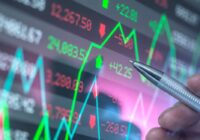The proverbs of yore offered consolation to generations of poor souls who had to deal with the whims of Dame Fortune. That was before modern technologically-defined environmental bubbles – from air conditioned homes, offices and cars to online discussion groups and Facebook pages – defined the norms of the consumer society, designed to avert various forms of discomfort and inconvenience.
One of the most poignant of the old proverbs belongs to the family of expressions crafted to encourage hope in the face of adversity. “Every cloud has its silver lining” still resonates even if, thanks to AC, we rarely find ourselves directly exposed to the inconvenience of bad weather. Most people no longer remember the old standby, “It’s an ill wind that blows no one any good.” The difference between the two proverbs is that the latter focuses the attention on the potential illness of a wind. Rather than simply reassuring, it admits that the wind may indeed be something to be concerned about.
Moneywise, a journal dedicated to investment advice, offers a glimpse of why the second proverb merits our consideration today. It is not only the increasingly visible violence of our weather that makes it harder and harder to deny the phenomenon of climate change. From the investment magazine’s point of view, the only weather capable of raising true concern is the kind of impending tempest the media call a stock market crash. Alarms now appear to be ringing, so for the wise and wealthy, it is rapidly becoming time to act. But how?
With a wry smile on his face in the picture just below the title of the article, author and investment expert Robert Kiyosaki provides this succinct weather report: “Millions will be wiped out.” Moreover, he believes that the crash is already underway. The title of the article concludes with these words: “But now could also be the perfect time to ‘get richer’ — here’s how.”
Today’s Weekly Devil’s Dictionary definition:
Get richer:
The opposite of get poorer, which is what happens to most people in times of crisis, often threatening their survival. Only the already wealthy, whose survival is never in question, can “get richer.”
Contextual note
The article offers the reader the silver lining everyone might expect from a journal dedicated to investment advice. Kiyosaki looks beyond what’s required for weathering the storm. He wants to tell the reader how to profit from it. “While it might be tempting to hide out in cash,” the article explains, “Rich Dad Poor Dad author Robert Kiyosaki believes that it could be the ideal time to ‘get richer.’”
The rich have no fear of crises. They are occasions to increase one’s wealth. Kiyosaki explains what should be obvious to anyone who has followed the history of markets over the past two decades, even if the media traditionally hesitated to trumpet it to the general public. “2008 was a great time to get rich,” Kiyosaki reminds those who have the means to play the market on a major scale. “Everything went on sale. Borrowed millions of dollars buying real estate bargains.”
The message is clear. If you didn’t get rich then, you probably have yourself to blame. But, if we follow Kiyosaki’s advice, now is the time to act before it’s too late. Because this time around, the crash is bound to be a real doozy. The author considers himself an oracle, claiming that in 2013 he published Rich Dads Prophecy predicting a bigger crash to come. “THAT CRASH is HERE. Millions will be wiped out.” So, as another proverb instructs us, it’s time to “make hay while the sun is shining,” even if the sun is forecast to shortly disappear behind a menacing dark cloud and generate a particularly ill solar wind.
With studied understatement, the article offers “a look at two assets that might help you survive this storm.” But for the wealthy it’s never about survival. Instead it’s exactly as Kiyosaki says: it’s about “getting richer.”
Historical note
Skeptical readers may not be inclined to believe the predictions of Robert Kiyosaki, who not only failed to predict the 2008 crash, he promoted investment in real estate right up until the subprime crisis that gutted the market. They are more likely to listen to the testimony of Michael Burry, the hero of The Big Short (book and film) who anticipated and profited from that crash. Business Insider reports that last summer Burry “sounded the alarm on the ‘greatest speculative bubble of all time in all things’” calling the event to come the “mother of all crashes.” Like Kiyosaki, he claimed that “’Doomsday is finally here’ in a since-deleted tweet” sent last week. If that isn’t enough, the New York Post featured the forecast of “famed investor Jeremy Grantham, evoking a “tragedy” and a “superbubble,” characterized by a situation in which “all three major asset classes – housing, stocks, and bonds – were critically historically overvalued at the end of last year.”
Many commentators less interested in investment than the health of the global economy and the culturally destabilizing effects of growing inequality didn’t have to wait till 2022 to understand that things have been going in the wrong direction since the bailout in 2009. They saw the writing on the wall as Quantitative Easing (QE) morphed from the response to a crisis into a way of life. In 2016, The Economic Times of India wrote: “Permanent monetisation may be inevitable, given the risks and difficulties entailed in undoing the asset accretion that happened under QE. It can prove beneficial, too.” To write it “can prove beneficial” acknowledges that it might not be in the long term. Yesterday’s short term solution becomes today’s long-term catastrophe.
Nobody really knows what drives or sustains global markets. But everyone is free to speculate. Moneywise is an organ of the media, like many others, designed to guide the speculation of the wealthy. So long as the wealthy remain focused on how to exploit a crisis for themselves in the interest of getting richer, society itself is assured of getting poorer.
*[In the age of Oscar Wilde and Mark Twain, another American wit, the journalist Ambrose Bierce produced a series of satirical definitions of commonly used terms, throwing light on their hidden meanings in real discourse. Bierce eventually collected and published them as a book, The Devil’s Dictionary, in 1911. We have shamelessly appropriated his title in the interest of continuing his wholesome pedagogical effort to enlighten generations of readers of the news. Read more of Fair Observer Devil’s Dictionary.]
The views expressed in this article are the author’s own and do not necessarily reflect Fair Observer’s editorial policy.
Support Fair Observer
We rely on your support for our independence, diversity and quality.
For more than 10 years, Fair Observer has been free, fair and independent. No billionaire owns us, no advertisers control us. We are a reader-supported nonprofit. Unlike many other publications, we keep our content free for readers regardless of where they live or whether they can afford to pay. We have no paywalls and no ads.
In the post-truth era of fake news, echo chambers and filter bubbles, we publish a plurality of perspectives from around the world. Anyone can publish with us, but everyone goes through a rigorous editorial process. So, you get fact-checked, well-reasoned content instead of noise.
We publish 2,500+ voices from 90+ countries. We also conduct education and training programs
on subjects ranging from digital media and journalism to writing and critical thinking. This
doesn’t come cheap. Servers, editors, trainers and web developers cost
money.
Please consider supporting us on a regular basis as a recurring donor or a
sustaining member.
Will you support FO’s journalism?
We rely on your support for our independence, diversity and quality.







Comment